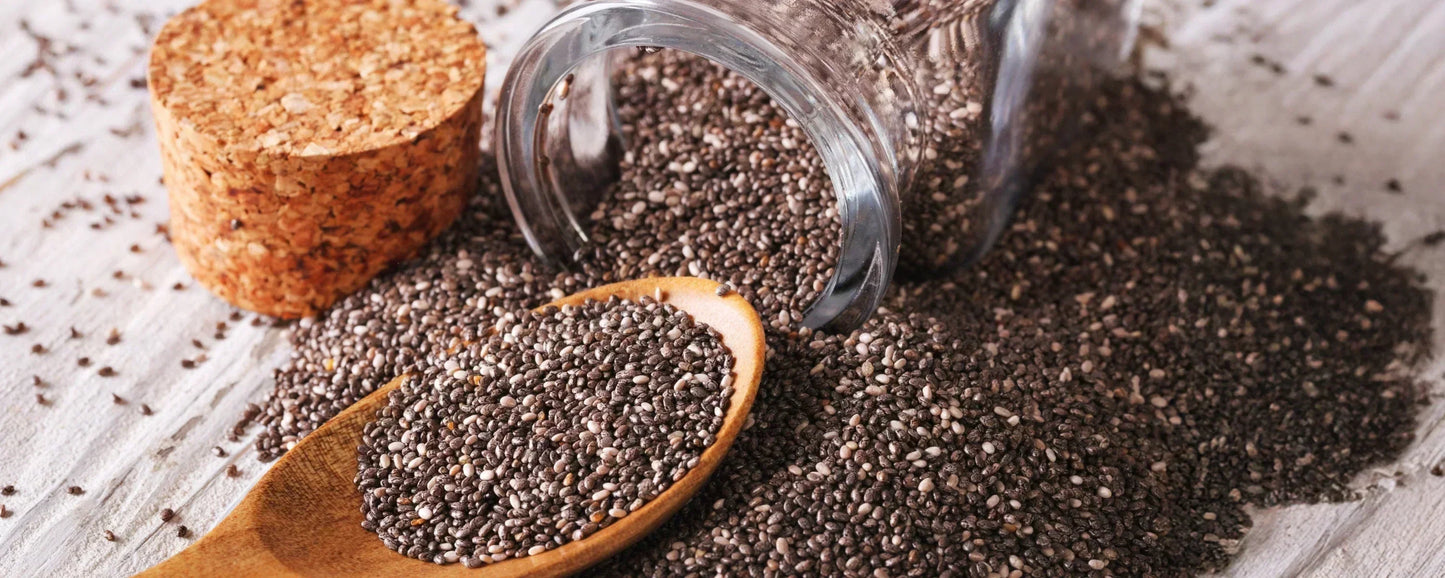
You've likely heard that you should eat more seeds for your health. They're often lumped together with nuts (aka "eat more nuts and seeds"). But you've probably also thought ... well, seeds are tiny. What can these small seeds really do for me? And how many seeds do I need to eat to get real health benefits?
The Health Benefits of Seeds
Seeds are a powerhouse of nutrition, providing essential nutrients like fiber, healthy fats, and magnesium. They're kind of the unspoken health star of the plant world. Think about it: If planted and watered, seeds have the ability to turn into entirely new plants. So it makes sense that, within seeds, you get a good balance of nutrition that can help you thrive. The well balanced composition of seeds provides many of the nutrients that people are often lacking: fiber, monounsaturated fats including omega 3s, and magnesium.
Certain seeds also contain lignans, a type of polyphenol that acts as a heart protective antioxidant and has been linked to lowering cholesterol.
If protecting your heart and cardiovascular health is of importance (and it should be for everyone), then seeds contain the main nutrients to help you do so.
The Seeds In Struesli
Struesli Original contains the three healthiest seeds on the planet: organic golden flax meal (ground flax seeds), organic chia seeds, and organic hemp hearts. Here's why each one is good for your heart:
1. Flax seeds
Flax seeds are high in fiber and omega-3 fatty acids, the majority of which reside in the outer shell of the seed. Therefore, you're not getting all the omega-3 benefits of flax seeds unless they're ground into flax meal, which they are in Struesli. For maximum health benefits, the best way to eat flax seeds is ground and added to foods, such as oatmeal, smoothies, and baked goods.
Flax seeds are high in antioxidant lignans, which have been connected to many heart-health benefits, including lowered blood pressure and more balanced blood sugars. The magnesium in flaxseed is also impressive. It contains more of this heart protective mineral than most nuts, though not as much as hemp seeds.
2. Chia seeds
Similar to flax seeds, chia seeds are a great source of fiber and healthy fats. Several studies have shown that eating these tiny black seeds can increase the ALA (alpha lipoic acid) content of your blood. ALA is an important antioxidant and omega-3 that has been connected to lowering inflammation. Eating chia seeds has also been shown to lower blood pressure and reduce appetite.
3. Hemp seeds
Also known as hemp hearts or hemp protein, hemp seeds have a higher protein content than any other type of seed. Plus, they're rare in that they're a plant-based food that provides all 9 of the essential amino acids in one package. About 30% of a hemp seed is protein, and they also boast a high amount of monounsaturated fats, including those coveted omega-3 and omega-6 fatty acids.
When stored properly in a cool, dark pantry or the refrigerator, flaxseed, chia seeds, and hemp chia will last for up to one year.
How Many Seeds Should You Eat Daily?
So, seeds are clearly good for me. But just how many of them do you need to eat in order to reap the benefits? Don't worry, you don't need handfuls and handfuls of seeds. Just a small daily serving of seeds is sufficient to reap their health benefits.
You can get the benefits of these little powerhouse foods with a simple 2-tablespoon (1 ounce) serving per day. That's as easy as adding seeds to yogurt, oatmeal, smoothies, and salads.
Simpler yet, just eat more Struesli! It includes these powerful seeds, making it an easy way to incorporate them into your diet. To get the benefits of flax seeds, chia seeds, and hemp seeds, just sprinkle a serving of Struesli over your morning yogurt and you've got the perfect mix of nutrients to give your heart the health and love it deserves.
Written by Jessie Shafer, RD
Updated April 30, 2025




